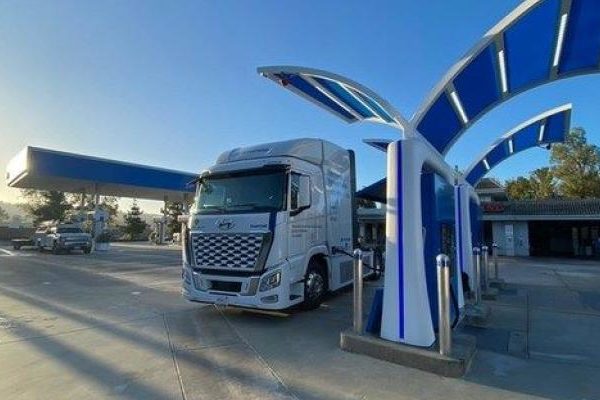
Urban developers are adopting smart technologies to meet environmental and safety demands. Cities can improve residents’ health and well-being by powering smart devices with emission-free electricity. Transitioning away from fossil fuels requires significant grid alterations.
Energy professionals can optimize renewable power supplies with fuel cell technologies. Fuel cells store excess electricity to balance different energy demands. Abundant power supplies can effectively support smart city features and sustainability goals.
Decarbonizing the Energy Grid
Fuel cell technology supports smart city systems and decarbonization efforts. The U.S. plans to shrink its carbon footprint by adopting renewable power supplies. The country set a sustainability goal to achieve net-zero energy emissions by 2050.
Supporting the national grid with renewables requires advanced storage technology. Photovoltaic (PV) solar panels produce electricity on-site and deliver it directly to consumers. The panels may waste energy when consumption rates are low if it’s not stored.
Environmental engineers developed fuel cell batteries to store excess renewable electricity during low-consumption periods. The batteries can increase the emission-free power supply, supporting smart city systems. Using fuel cells in smart cities can improve four significant sectors.
Protecting Residents’ Health
The first sector impacted by fuel cell technology is human health. Decarbonizing the energy grid improves urban residents’ lung protection. Individuals’ risk of asthma, lung cancer, and other respiratory illnesses increases in high-emission regions.
Abundant renewable energy supplies also support smart hygiene systems. Cities can power electric street sweepers with renewables to lower operational costs and improve residents’ health. Fuel cell technology may also minimize power outages, reducing safety hazards.
Reducing Safety Hazards
Smart cities can improve their energy resilience by storing renewable electricity in fuel cell batteries. Advanced urban areas rely on cameras, monitors, and other security features to protect residents. The devices use the internet of things (IoT) to share data autonomously.
Preventing power outage disruptions increases individuals’ safety. Smart security systems improve emergency response times by detecting efficient transportation routes.
Fuel cell batteries also support smart cities by powering net-zero buildings.
Supporting Net-Zero Buildings
Sustainable cities are placing emission regulations on residential and commercial buildings. Building owners are meeting the regulations by producing as much emission-free electricity as they consume. They generate clean electricity and shrink their carbon footprints by installing rooftop solar panels.
Building owners can rely on fuel cell batteries to store excess electricity and minimize waste autonomously. They may also enhance a structure’s efficiency by installing smart appliances. Smart lights, thermostats, and other systems may conserve renewable energy supplies.
Improving Transportation Sustainability
The final smart sector impacted by fuel cell technology is urban transportation. Nearly 27% of America’s greenhouse gas emissions come from the transportation sector. Major cities like Los Angeles plan to minimize urban emissions by decarbonizing their transit systems.
Adopting electric vehicles (EVs) and buses requires more charging stations. Smart cities can autonomously extract energy from fuel cell batteries to power the stations. They may also connect the chargers to renewable energy supplies, reducing air pollution.
The Benefits of Smart Cities
Residents may access various benefits when building smart cities using fuel cell systems. They can create up-to-date infrastructure features that enhance a city’s security and aesthetic. Additionally, smart cities facilitate better community collaboration.
Sharing data may improve residents’ comfort and lifestyle efficiency. IoT-connected systems also enhance individuals’ safety. Increasing residents’ access to emergency response features minimizes crime and fatal medical complications.


Jane Marsh, Contributor
The views and opinions expressed herein are those of the authors and do not necessarily reflect the official policy or position of Fuel Cells Works, its directors, partners, staff, contributors, or suppliers. Any content provided by our contributors or authors are of their own opinion and are not intended to malign any religion, ethnic group, club, organization, company, individual or anyone or anything.
Read the most up to date Fuel Cell and Hydrogen Industry news at FuelCellsWorks




